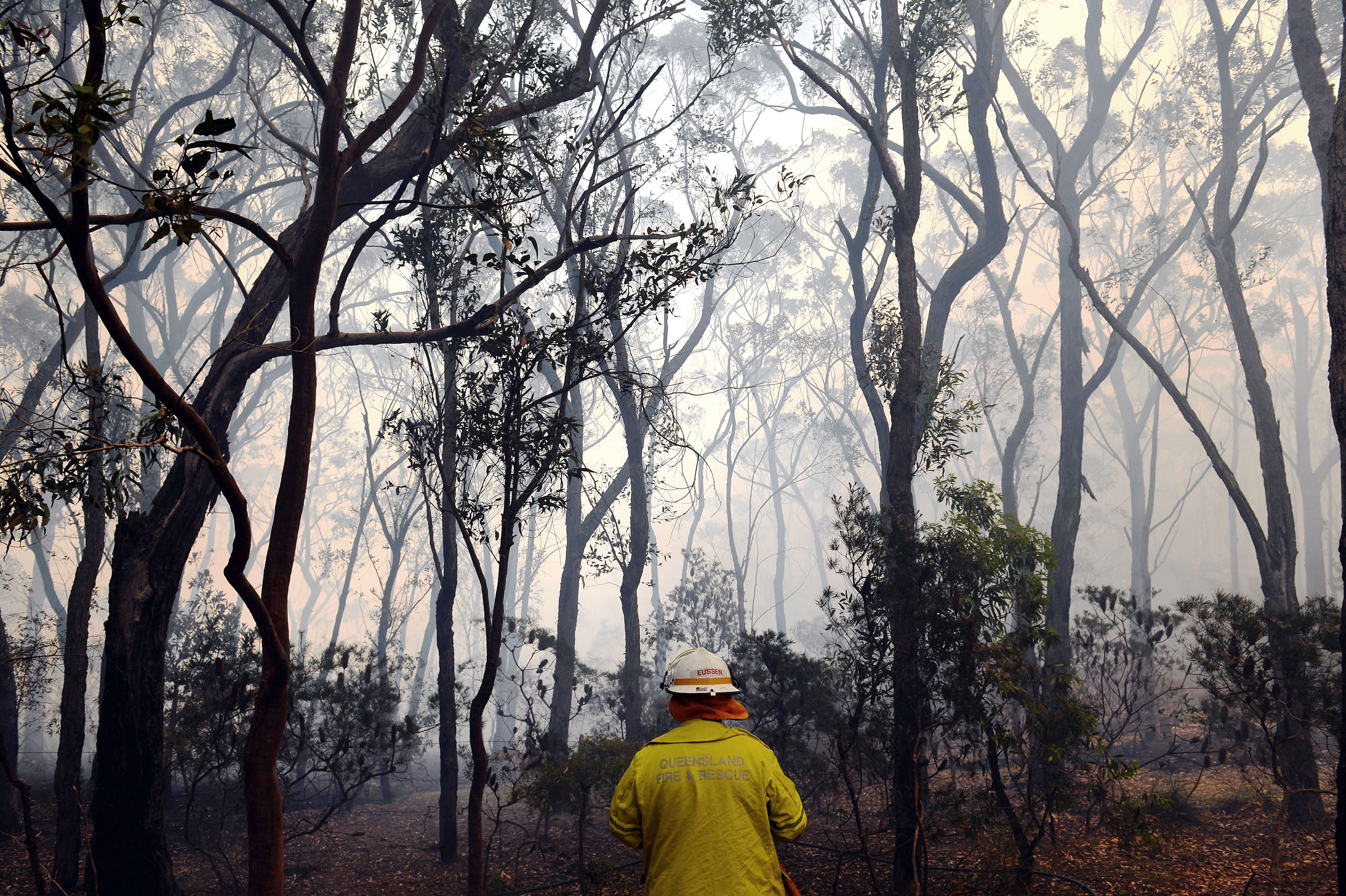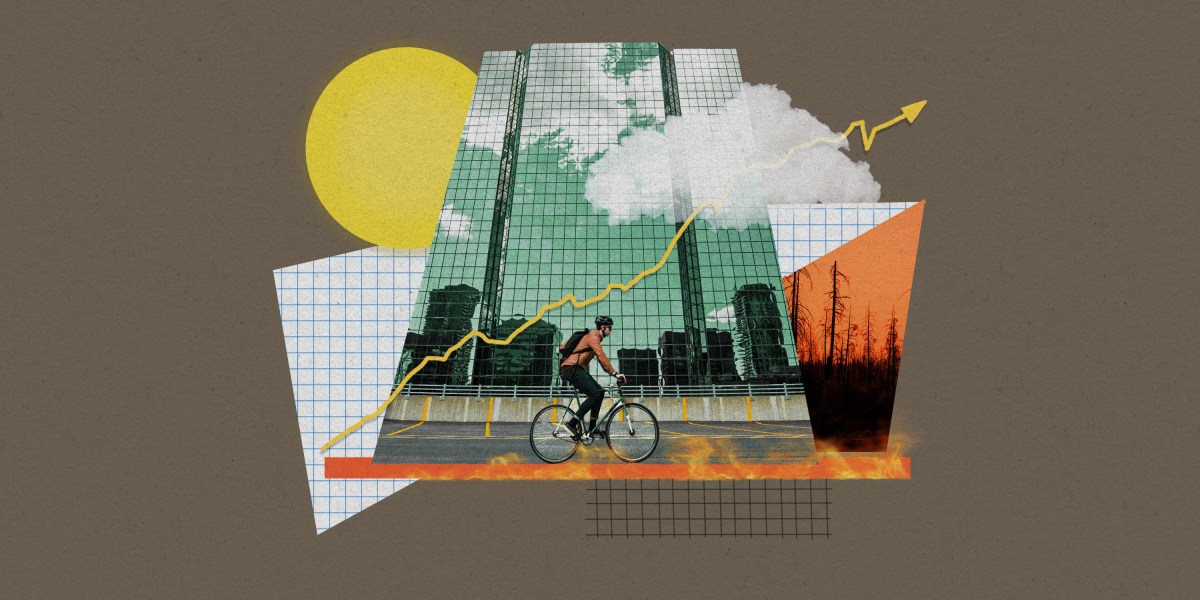The Download: recreating the early internet, and 2023 in climate data
This is today’s edition of The Download, our weekday newsletter that provides a daily dose of what’s going on in the world of technology.
Recapturing early internet whimsy with HTML
Websites weren’t always slick digital experiences.
There was a time when surfing the web involved opening tabs that played music against your will and sifting through walls of text on a colored background. In the 2000s, before Squarespace and social media, websites were manifestations of individuality—built from scratch using HTML, by users who had some knowledge of code.
Scattered across the web are communities of programmers working to revive this seemingly outdated approach. And the movement is anything but a superficial appeal to retro aesthetics—it’s about celebrating the human touch in digital experiences. Read the full story.
—Tiffany Ng
This story is from the next magazine edition of MIT Technology Review, set to go live on January 8—and it’s all about innovation. If you don’t already, take advantage of our seasonal subscription offers to get a copy when it lands.
2023 is breaking all sorts of climate records
This has been quite the year for climate news, with weather disasters, technological breakthroughs, and policy changes making headlines around the world. There’s an abundance of bad news, but there are also some glimmers of hope, if you know where to look.
It’s a lot to make sense of, so we took a look back at the year, with the help of plenty of data. A “climate wrapped,” if you will. Check it out, and also read our story about why our climate team is more optimistic than you might imagine.
—Casey Crownhart
This story is from The Spark, MIT Technology Review’s weekly climate newsletter. Sign up to receive it in your inbox every Wednesday.
The must-reads
I’ve combed the internet to find you today’s most fun/important/scary/fascinating stories about technology.
1 Child sexual abuse photos have been found in AI training data sets
It’s a shocking demonstration of how little we know about the massive amounts of data generative AI models are trained on. (WP $)
+ The biggest AI image training data set, LAION, has been temporarily taken offline while it scrambles to respond. (404 Media)
2Apple’s headset could be ready as early as February 2024
Then we’ll find out the answer to the big question: who will buy it? (Bloomberg $)
+ These minuscule pixels are poised to take augmented reality by storm. (MIT Technology Review)
3 TikTok moderators are struggling to assess Israel-Gaza content
The big problem is a lack of local language skills in content moderation teams. (The Guardian)
+ Meta’s oversight board has said AI is leading the company to remove too many posts related to the conflict. (Quartz)
+ Search engines help to boost misinformation. (Scientific American $)
4 The US pumped more oil than any other country in history in 2023
Sounds dreadful, but the reality below the headline is complex. (The Atlantic $)
+ Fossil-fuel emissions are over a million times greater than carbon removal efforts. (MIT Technology Review)
5 What will Ozempic’s next act be? 
These types of drugs are being studied as treatments for everything from addiction to liver disease to infertility. (NYT $)
+ Weight-loss injections have taken over the internet. But what does this mean for people IRL? (MIT Technology Review)
6 YouTube is one of the last bastions of unbiased journalism in India
And even then, reporters who run their own channels work with few protections and a lot of fear. (Rest of World)
7 X went down for more than an hour
It’s not the only major outage for the site in recent days either. (The Verge)
+ How Twitter died in 2023. (Engadget)
8 Science fiction is kinda ruining the world
Billionaires grew up reading dystopian novels, and now they’re determined to make them a reality. (Scientific American $)
9 What happens to our planet when the sun dies?
Read this for a healthy helping of perspective over the holidays(!) (Quanta $)
10 How 2023 went down on social media
It wasn’t a vintage year in honesty, but there were still plenty of lolz—and drama—to go around. (NYT $)
Quote of the day
“People have always been able to lie, but the effectiveness of those lies is now augmented and significantly increased.”
—Arizona’s Secretary of State Adrian Fontes tells Wired how he expects AI to affect the 2024 elections.
The big story
A Roomba recorded a woman on the toilet. How did screenshots end up on Facebook?

December 2022
In the fall of 2020, gig workers in Venezuela posted a series of images to online forums where they gathered to talk shop. The photos were mundane, if sometimes intimate, household scenes captured from low angles—including a revealing shot of a young woman sitting on the toilet, her shorts pulled down to mid-thigh.
The images were taken by development versions of a Roomba robot vacuum. They were then sent to Scale AI, a startup that contracts workers around the world to label data used to train artificial intelligence.
MIT Technology Review obtained 15 screenshots of these private photos, which had been posted to closed social media groups. The images reveal a whole data supply chain—and new points where personal information could leak out—that few consumers are even aware of. Read the full story.
—Eileen Guo
We can still have nice things
A place for comfort, fun and distraction to brighten up your day. (Got any ideas? Drop me a line or tweet ’em at me.)
+ The new year is approaching, and with it: 30 days of yoga with Adriene!
+ The JWST has gifted us with a plethora of amazing images this year. Here are some of the most impressive.
+ There’s never a bad time to eat delicious pasta dishes.
+ Shout out to Sally Snowman, the Boston Light first and online female lighthouse keeper.
+ India’s oldest bookshop looks like a lovely place.




